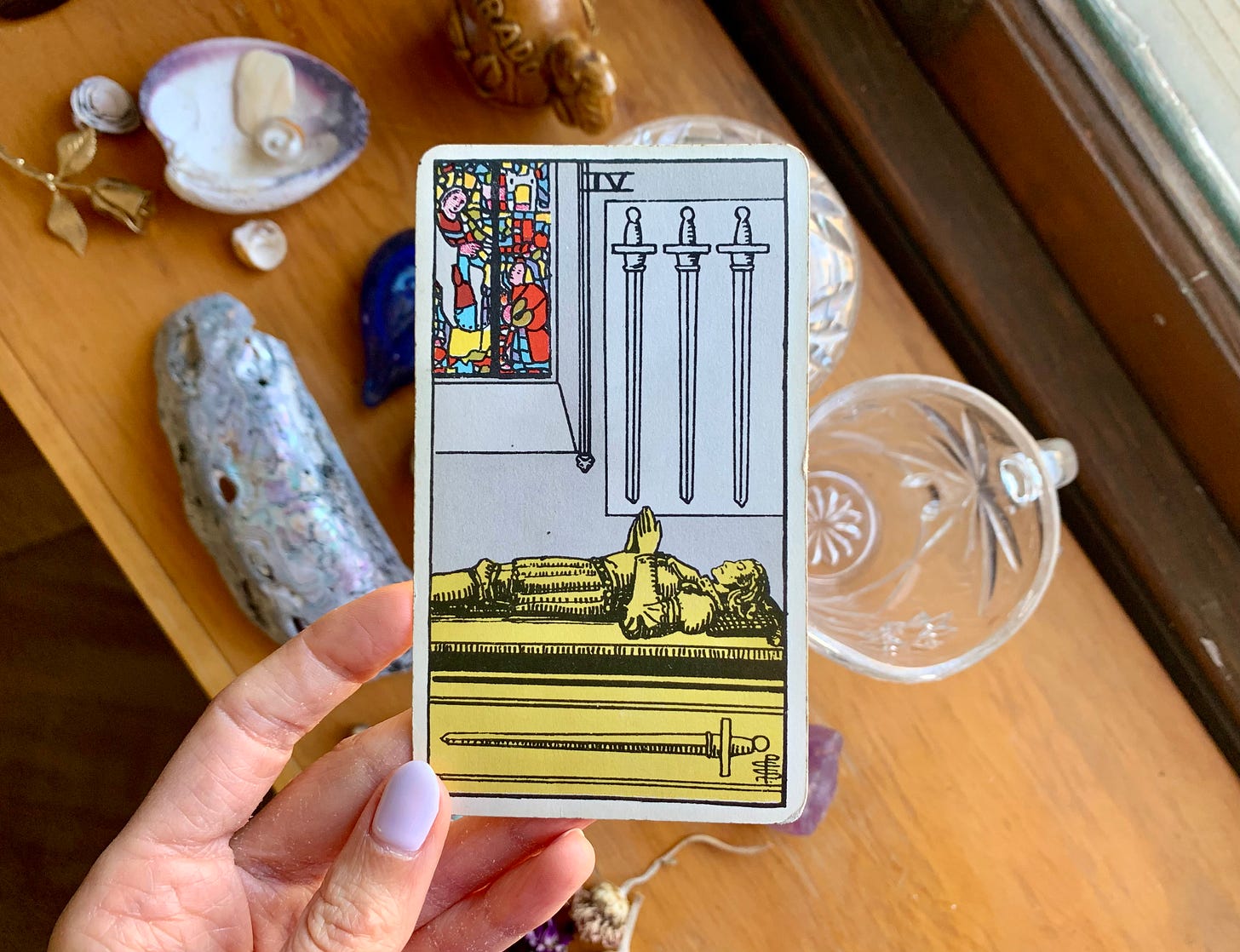I’m teaching Tarot for Change: An Introduction to Tarot for Spiritual Practice twice this month, February 17 and February 21. Click the links for details and to register.
This week I started reading Stephen Mitchell’s Joseph and the Way of Forgiveness, which has been collecting dust on my bookshelf since someone gifted it to me in 2019. Having grown up only casually religious, I don’t know many tales from the bible. I’ve arrived to these stories often by chance encounters, and my engagement with them often feels like I’m late to a party.
Joseph is perhaps best known in the mainstream for his amazing technicolor dream coat, but I’m going to tell you what else I’ve learned about his story so far. Whether you know it or not, bear in mind that this tale’s unfolding before me. Which is to say that if you know it well and I seem adrift in my sense-making, it might be I don’t know all that you do.
Joseph is the eldest son of Jacob and his favorite wife Rachel. When Rachel dies giving birth to Joseph’s younger brother, Jacob copes with his grief by keeping Joseph nearby all the time. Joseph’s gorgeous and gifted. But he’s also a tattle-tale.
Joseph has several half brothers. He doesn’t understand that, in addition to not loving their second-rate status in the family after him, they don’t appreciate Joseph’s constant clocking and reporting them back to their dad.
Joseph’s brilliant, but suffers a real lack of empathy. He has no idea how he makes others feel. When his father scores him a marvelous multi-colored coat at the market—one of many affirmations of his favoritism—Joseph starts to have dreams about the whole family bowing down to him.
He can’t understand why the others aren’t as stoked to hear about the dreams as he is to tell them. Jacob, understanding the danger in thinking so highly of yourself as Joseph does, starts to lose sleep over worry for his beloved son.
For the brothers, being made to sit through Joseph’s recounting of yet another dream in which the family bows down to him is the straw that breaks the camel’s back. Sick and tired of feeling inferior, they start to think they’d be better off without him around. Tending their flocks one day, they decide together to kill him.
Later that day when Joseph rolls up in his technicolored coat—“woven of the finest wool, dyed scarlet, crimson, maroon, yellow, green, royal blue, turquoise, and Tyrian purple…threaded with gold and silver…on its front was embroidered a scene of the earthly paradise”—there’s a glint of red in Simeon’s eyes as he says to the others, “here comes the dreamer…Now is our chance.”
Joseph smiles when he sees them. He’s pleased to arrive and assumes his brothers will be happy to see him too. Mitchell says “he couldn’t parse the angry faces as he drew near.” I think he was so busy expecting a kind greeting he forgot to consider something else could be possible. I’m sure many of us can relate to the experience of needing to believe we are loved more than we are.
The brother’s tear off his coat, beat him up, and throw him into one of the stone cisterns they use to collect water in rain season. It’s a rough scene, but one of the hardest parts for me by far is when the brothers are sitting around afterward, eating hunks of bread and cheese, swigging wine from goat skins, and joking.
One says a cistern is a great place to dream in. Another says, since Joseph is such a great dreamer, he can dream himself a stairway to heaven. In the quiet moments between jokes they can hear Joseph begging them, “save me.” Which of course, they ignore.
Inside the cistern Joseph’s deeply disoriented. He’s experiencing that “gemini of chaotic sorrow1” which is grief and trauma combined. What distinguishes harm from betrayal is the violation of trust, and betrayal is often traumatic.
And though it was Joseph’s lack of empathy that made him so oblivious to his brothers’ resentment and hatred, the fact remains that he really did trust them. When they beat him and leave him for dead, that breach of trust throws him into a hectic despair.




